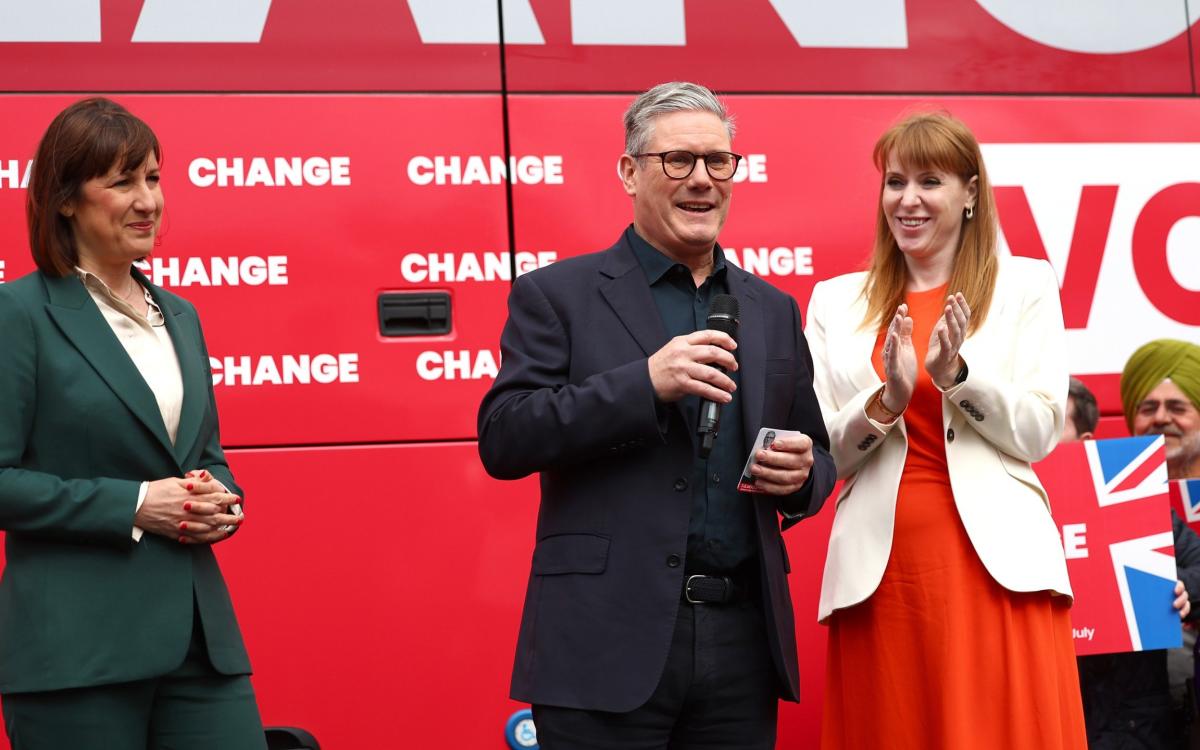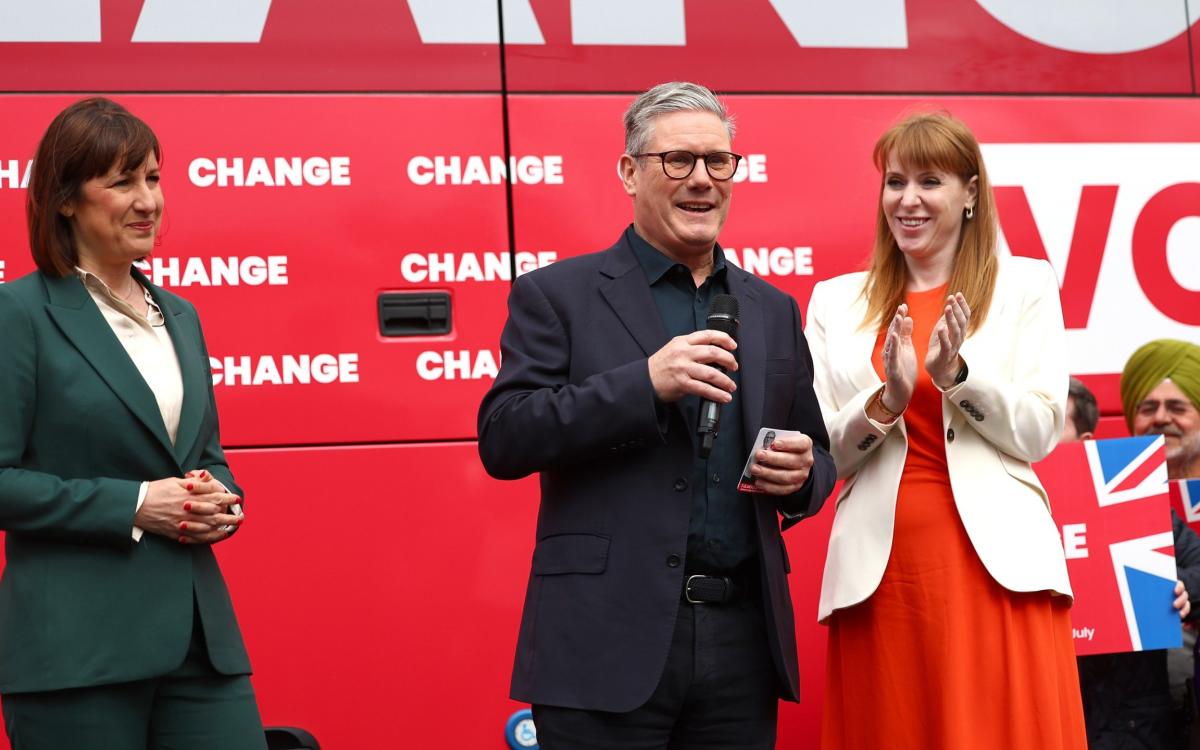
Many commentators have been using adjectives like devastating and seismic to describe the significance of the election result.
With regard to the political landscape they may well be right – and in due course they may also be right about constitutional matters.
But that is not my bailiwick. As far as the economy is concerned, I doubt whether what has happened will prove to be seismic at all.
We have had years of Labour policies under the Conservatives. They have allowed government spending to rise significantly as a share of GDP. Accordingly, despite all the guff about lowering taxes, they presided over the highest tax burden since the late 1940s.
They introduced large increases in the National Living Wage and National Minimum Wage, and failed to take on striking workers causing havoc in the NHS and on the railways.
There has been no exploitation of Brexit freedoms. There seems to have been a tacit belief that we could grow the workforce and the economy by allowing huge levels of immigration, while not tackling the workshy culture under which millions have become economically inactive.
In fact, changes of government seldom bring decisive shifts in economic policy. As and when seismic upheaval does occur, it derives from changes in the world of ideas which tend to sweep over all the major parties.
The post-war Labour Government, influenced by the experience of a command economy, embraced wholesale state control and nationalisation, accompanied by high taxes.
But when the Conservatives returned to office in 1951, they largely retained this settlement. Remarkably, under the Macmillan Conservative government, the top rate of tax was roughly double where it stood under Tony Blair more than 30 years later.
Arguably the election of Margaret Thatcher in 1979 was an exception to my rule. Yet two key aspects of her radical programme had in fact been attempted under Labour – a major reduction in the power of the trade unions and the adoption of some form of monetarism, including monetary targets and the rejection of the policy of just pumping up aggregate demand to keep unemployment down.
Admittedly, some really radical policies were enacted in Mrs Thatcher’s second term, including wholesale privatisation and further reductions in tax rates. Interestingly, these key features of the Thatcher regime were maintained by Tony Blair’s Labour government.
Labour’s big new idea on taking office in 1997 was to grant independence to the Bank of England. This stands as one of the lasting legacies of that government. But in fact it had been advocated almost a decade earlier by a Conservative chancellor, Nigel Lawson.
The Coalition Government’s radical innovation in 2010 was the establishment of the Office for Budget Responsibility (OBR). It was conceived partly as a way of constraining any future Labour Government. In fact, it ended up being a major restraint on the Conservatives.
Liz Truss wanted to sideline the organisation and other leading Conservatives sought to abolish it. Labour will surely stick with it, and with the fiscal rules largely in the current form.
So what will Labour do to bring about its brave new world? Fresh with enthusiasm in the aftermath of victory, countless Labour MPs are gushing about how they are going to transform the country by pouring money into the NHS, schools, the police and heaven knows what else.
Yet any student of the British economy knows that without reform, pouring money into these institutions will achieve little. And in any case, there isn’t an awful lot of money to pour in.
Moreover, laudable though it might be to improve such institutions, even if this could be achieved, it would not have much direct impact on our economic performance. Senior Labour figures understand that if they are going to be able to achieve anything at all they will have to raise our sustainable rate of economic growth.
But how? The key has to be persuading the private sector to spend more on productive investment. Labour’s kneejerk approach to this will probably be to cajole business with a mixture of sticks and carrots. This is destined to fail.
The answer is to introduce structural reforms which encourage a wave of investment and improve productivity and effciency. There are three big areas that Labour should concentrate on.
The first is planning reform, with a view not only to facilitating a huge increase in the rate of housebuilding, which Labour embraces, but also to making commercial development easier, which Labour is yet to enthuse about.
The Conservative Party already twigged that such an approach was needed and it started to do something about it. Unfortunately, its will failed in the wake of the disastrous Amersham by-election in 2021, when voters defected to the Liberal Democrats.
The second area of major change is the embrace of road pricing under which journeys by road would be charged a fee, depending upon the time of day, type of road, and level of congestion.
In fact, Labour adopted this idea in 2005, but then abandoned it in 2009. With a huge majority in Parliament it now has the scope to push through such a policy. It would initially be unpopular but could be accompanied by a reduction in tax rates and it could be a radical contributor to improving efficiency.
The third area is reform of higher education. Not only do we waste enormous amounts of public resources in “uneducating” millions of young people but we lose their services in the labour force for a minimum of three years. We need to enhance and support our many excellent universities while simultaneously culling the long tail of poor performers.
As they approached the election, the Conservatives talked of doing something about this, but only after 14 years of doing nothing.
Labour or Conservative, a huge parliamentary majority presents an opportunity to introduce fundamental reforms that can improve our economic performance. I hope this new government seizes it.
Roger Bootle is senior independent adviser to Capital Economics.
roger.bootle@capitaleconomics.com
EMEA Tribune is not involved in this news article, it is taken from our partners and or from the News Agencies. Copyright and Credit go to the News Agencies, email news@emeatribune.com Follow our WhatsApp verified Channel





